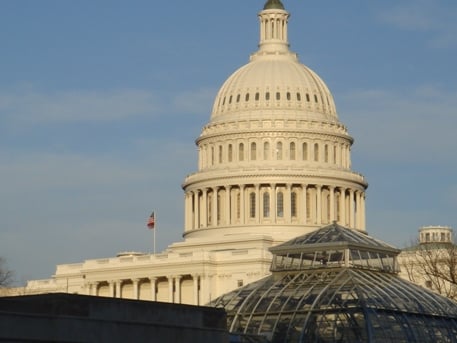IAA plans 'lobbying day' to convice lawmakers to drop plan; Finra said to be actively pushing for the gig
Investment advisers need to be more vocal on Capitol Hill if they want to stop legislation that would establish a self-regulatory organization to oversee the industry, leaders of an interest group representing them said Friday.
The Investment Adviser Association is planning a “lobbying day” for June 7. The organization will set up meetings between financial advisers and members of Congress and their staffs to discuss, among other topics, a draft SRO bill written by House Financial Services Committee Chairman Spencer Bachus, R-Ala.
He could issue a revised draft or introduce a formal bill soon, according to IAA officials. The SRO measure is getting strong backing from the Financial Industry Regulatory Authority Inc.
“Despite our best efforts, there is still a woeful ignorance of the role investment advisers play,” Neil Simon, IAA vice president for government relations, told attendees at the organization's compliance conference in Arlington, Va.
“They're aware of Finra,” he said. “We need to help educate policymakers so they make informed decisions.”
Mr. Simon said that advisers must become personally involved in reaching out to Congress.
“If the message IAA is delivering is going to resonate politically, it is absolutely essential that advisers who live and work in these locales sit down with their elected representatives and their staffs,” he said. “I'd love to see 50 or more firms on the Hill, whether they're members of IAA or not.”
Mr. Bachus' SRO bill was offered in response to a Securities and Exchange Commission study delivered to Congress in January 2011.
The report, mandated by the Dodd-Frank financial reform law, noted that each year, the SEC examines only about 8% of the 11,500 advisers registered with the commission. It offered three recommendations to strengthen adviser oversight: allow the SEC to charge user fees for exams, establish an SRO, or expand Finra's reach to include advisers who are dually registered as brokers.
Each of the options would require congressional authorization.
An SRO is a bad idea, especially if Finra assumes the role, said David Tittsworth, the IAA's executive director.
Finra lacks transparency and accountability, has an inherent conflict of interest and also is biased toward the broker-dealer business model, he said.
The notion of an SRO is anathema to most advisers. They argue that the SEC has experience administering the fiduciary duty standard to which advisers must adhere.
Finra, as the SRO for broker-dealers, enforces the less stringent suitability rule.
Finra maintains that it is best positioned to increase adviser examinations and would establish a separate regulatory regime for advisers, rather than trying to shoehorn them into the broker-dealer oversight approach.
Mr. Tittsworth warned the IAA conference audience that Finra is lobbying aggressively for the SRO bill.
“They're seeing this as the best opportunity to expand their turf that they have had in a long time, and they have friends in high places,” he said, noting that SEC Commissioner Elisse Walter wrote a sharp statement accompanying the SRO report that criticized it for not supporting the SRO option strongly enough.
In Capitol Hill meetings, the IAA has been promoting a recent study by the Boston Consulting Group which shows that that the SEC-user-fee option would cost $300 million to $400 million less annually than making Finra the adviser SRO or creating a new SRO.
Finra disputes those numbers, calling the study flawed.
“Finra continues to advocate the need for an SRO for investment advisers and the need to close the existing gap in investor protection,” Finra spokeswoman Nancy Condon wrote in an e-mail. “And until a framework and responsibilities for an IA SRO become clearer, it would be premature to estimate costs.”
Although Mr. Bachus is likely to get his SRO bill out of his committee this year, it is unclear whether the full House will vote on it. The Senate Banking Committee has expressed no interest in the measure so far.
Nonetheless, lobbying will continue to be fierce.
Mr. Simon joked about the IAA-Finra rivalry.
“For the 1-percenters of you out there who want to taste the urban camping experience, we are considering an Occupy Finra,” he told the IAA audience, tongue firmly in cheek.







